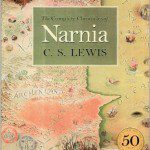
G. K. Chesterton once spoke of nature as our “little sister” and C. S. Lewis in The Discarded Image said that the biggest problem with the medieval model of the cosmos (besides being factually inaccurate) was its neatness.
Things can get uncomfortably tidy and small when all the meanings are clear.
But that’s not our problem these days. A reversal has occurred: the ancients had a better sense of what things mean, they just didn’t know how they worked; we on the other hand know how many things work, we just don’t know what they mean.
Paradoxically this opens modern people up to what I call the Old Testament aesthetic.
This aesthetic has another name: the sublime. Some people confuse sublimity with beauty, or even delight. “Oh, how sublime!” someone might say upon seeing a wedding cake. But the sublime, as Edmund Burke taught us is darker, and bigger–much bigger. It is outsized and indifferent, especially that. The gardens of Versailles are beautiful, the Grand Canyon is sublime.
The thing to note about the sublime is it doesn’t need you. What’s more: it can kill you if you’re not careful. Still, it can have a mysterious pull on insects like us, like the light of a bug zapper.
I have three fond memories of the tiny living room of my childhood. One is listening to Bill Cosby’s comedy album, “Why Is There Air?” (It’s been sad to see his demise.) The other two are the Time Life book with the foldout of the mural at the Peabody Museum of Natural History at Yale, I’m speaking of the Zallinger, Age of Reptiles mural, with its mighty Tyrannosaur Rex. I’d stare it for hours, enraptured and awed. Then there was the time my father read a selection from The Lord of the Rings. The Fellowship were in the mines of Moria and Merry and Pippin dropped that stone into the well to awaken the Balrog.
Two of those memories are sublime. I was made to feel small, and it pleased me somehow. I’ve been a fanboy of Tyrannosaur Rex and Tolkien ever since.
Don’t Explain, Describe
The thing to note about the sublime is explanations kill it. Knowledge has a way of reducing things to manageable proportions. It’s the whole knowledge is power thing. If you want your stories to have awe inspiring power though, you’ll need to leave your readers with more questions than answers. Remember, when it comes to the sublime, less is more.

When it comes to Clarke’s 2001 A Space Odyssey, I’ve always preferred Kubrick’s film to the book for just this reason. Clarke explains too much in the end. Kubrick just flashes those images at us of the monolith, the lights, and the star-child, accompanied by the Richard Strauss tone poem Also spruce Zarathustra. (Talk about the right choice.) You finish overwhelmed. That’s the point.
Tolkien excelled at this sort of thing. He was far better at it than C. S. Lewis. (Lewis, even dealing with the dangers of Aslan seeks to reassure us, not unnerve us.) The contemporary Lovecraftian, and socialist, China Mieville praises Tolkien’s Watcher at the Gates of Moria for this.
Dude. That totally was cool. I mean, say what you like about him, Tolk gives good monster. Shelob, Smaug, the Balrog…in their astounding names, the fearful verve of their descriptions, their various undomesticated malevolence, these creatures are utterly embedded in our world-view. No one can write giant spiders except through Shelob: all dragons are sidekicks now. And so on.
But the thing about the Watcher in the Water is WTF? Here the technique of under-describing, withholding, comes startlingly to the fore, that other great technique for communicating balefulness. We know almost nothing about the many-limbed thing in the water outside Moria. Some think it’s a giant squid: me, I say not, given that it lives in fresh water, has too many tentacles, and that those tentacles have fingers. Which squids don’t have. But we know three things. It is tentacular; it is badass; and it is weird. And that uncertainty is what makes it rock.
But is it monsters we want, or something even scarier, more awesome?
I think the latter. And if you really are looking to put everything you know, everything you rely upon in life, into brackets, then you need the Wholly Other. You’re looking for the one who dwells in thick darkness. And the Old Testament gives you what you’re looking for.
Here’s a little sample of what I’m talking about:
Then the earth reeled and rocked; the foundations also of the mountains trembled and quaked because he was angry. Smoke went up from his nostrils. and devouring fire from his mouth; glowing coals flamed forth from him. He bowed the heavens and came down; thick darkness was under his feet. …he came swiftly on the wings of the wind. He made darkness his covering, his canopy around him,…. Out of the brightness before him hailstones and coals of fire broke through (the) clouds.
Now, where is that from? The Hobbit, perhaps? Maybe the Silmarillion?
Nope, that’s from Psalm 18: 7-12. Bet you didn’t know that the Lord is a dragon. (Where’s the flannel graph for the kiddies in Sunday School? If we had more of this, maybe boys would like church more.)
When the Lord reveals himself in the Old Testament, this is the sort of thing we see: a Spirit hovering over a bottomless sea, a voice from a whirlwind, glory so potent it could kill you, a giant striding in the sea, wheels of fire descending, trumpets that keep getting louder, mountains melting, gibbering prophets abasing themselves.
Sublime.
I you want that sort of power in your stories, you must stop holding the hand of your readers with your explanations. Don’t make connections. Leave them hanging if you want awe. Some things can only be known through silence.
Well, I’ve got one more episode in this series on telling meaningful stories without preaching. The next installment is how to end a story, fittingly enough.












